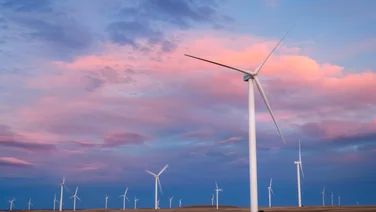- EV and heat pump uptake reduced the equivalent to 14 million barrels of oil in 2023
- Wind and solar power reached a combined 34% of UK power generation last year
- In 2023, more than 1 million EVs and 430,000 residential heat pumps were installed/purchased

The uptake growth in electric vehicles (EV) and heat pumps in the UK helped reduce the country’s oil and gas consumption in 2023 by the equivalent of 14 million barrels of oil, according to new analysis from think-tank Ember.
The figure is the equivalent of what the UK imports in two weeks, and Ember’s analysis found that energy wasted in generating power has fallen by 21% since 2000.
“In that time, wind and solar power have grown rapidly from almost zero, reaching a combined 34% of UK power generation last year,” Frankie Mayo, Ember analyst, said.
“This has led to a more efficient system, since wind and solar reduce energy waste compared to fossil fuels: the share of wasted total input energy has fallen from 60% in 2000 to 47% in 2023.”
According to Mayo, EVs need “ less than a third of the energy” used by petrol cars, and heat pumps use a quarter of fossil fuels of a gas boiler.
“This means that consumers purchase less energy to drive the same distance or to heat their homes, and the UK is less reliant on fossil fuel imports” Mayo said.
In 2023, more than 1 million EVs and 430,000 residential heat pumps were installed in the UK in 2023. At the same time, the UK hit its highest ever share of clean electricity last year at 60%, also reducing the amount of the fossil fuel power needed to power electrified technology.
“Electrified alternatives, like heat pumps and EVs are ultra efficient compared to clunky old fossil-backed options. The UK is now cutting reliance on unpredictable fossil imports at both ends of the energy system, though clean power, as well as EV and heating alternatives.
“Although electricity demand will increase from EVs and heat pumps, overall energy demand will fall because these appliances are much more efficient, as is generating power from clean sources.”






